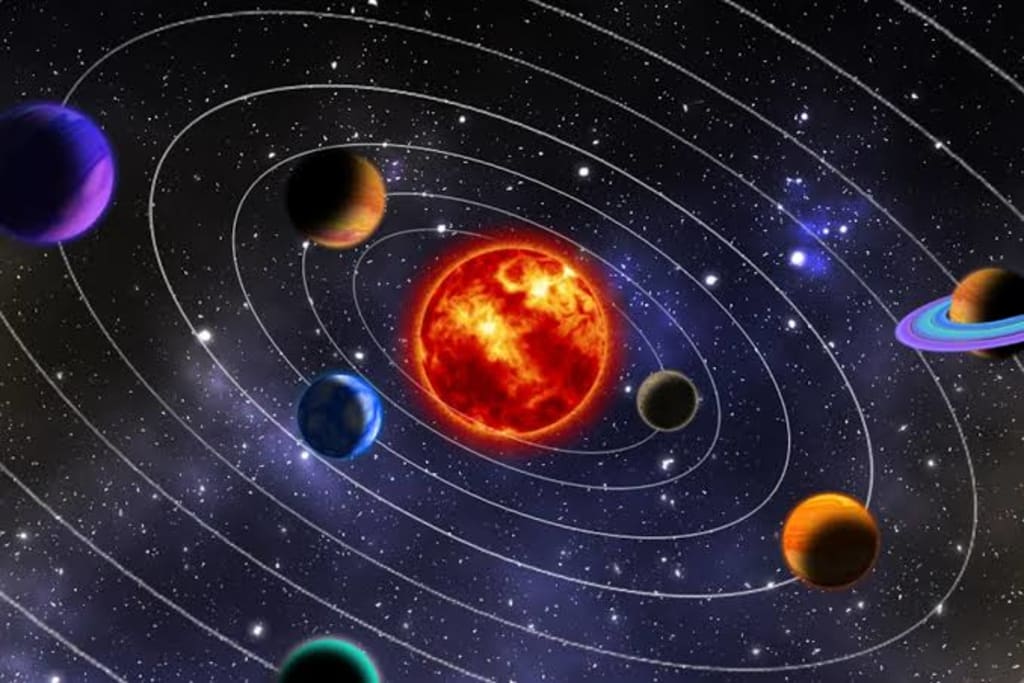
The solar system is a fascinating and complex system that includes the sun, planets, moons, asteroids, comets, and other celestial bodies that orbit around the sun. It is believed to have formed around 4.6 billion years ago from a giant cloud of gas and dust known as a solar nebula.
The sun, which is the largest object in the solar system, is at the center of the solar system and contains more than 99% of the total mass of the system. The sun is a giant, glowing ball of gas, primarily hydrogen and helium, that generates energy through a process known as nuclear fusion. It is estimated to have a diameter of about 1.39 million kilometers and a mass of about 333,000 times that of Earth.
The eight planets of the solar system are Mercury, Venus, Earth, Mars, Jupiter, Saturn, Uranus, and Neptune. The four inner planets, Mercury, Venus, Earth, and Mars, are rocky and relatively small, while the four outer planets, Jupiter, Saturn, Uranus, and Neptune, are gas giants and much larger than the inner planets.
The planets in the solar system are arranged in orbits around the sun, which is held in place by the force of gravity. The inner planets have short orbits and take less time to complete a single orbit around the sun than the outer planets, which have longer orbits.
The moons of the solar system are natural satellites that orbit around the planets. Some planets, like Jupiter and Saturn, have many moons, while others, like Mercury and Venus, have none. The largest moon in the solar system is Ganymede, which orbits around Jupiter and is larger than the planet Mercury.
In addition to the planets and moons, the solar system also contains asteroids, comets, and other small bodies. Asteroids are rocky objects that orbit the sun, mostly in the asteroid belt between Mars and Jupiter. Comets are icy objects that orbit the sun and have a tail that extends away from the sun due to the solar wind.
The study of the solar system is important for understanding the origins and evolution of our solar system and the universe as a whole. It has provided valuable insights into the formation of planets, the composition of celestial bodies, and the dynamics of the solar system. It has also enabled us to explore and study other planets and moons in our solar system through space exploration missions.
One of the most significant achievements in the study of the solar system has been the exploration of Mars. Since the 1960s, numerous missions have been sent to Mars to study its atmosphere, surface features, and the possibility of life. In 2012, the Mars rover Curiosity landed on the planet and has been exploring its surface ever since, providing valuable data and images of the planet.
The exploration of the outer planets has also been a significant achievement in the study of the solar system. The Voyager spacecraft, launched in 1977, explored Jupiter, Saturn, Uranus, and Neptune, providing valuable insights into the composition and dynamics of these planets and their moons.
In recent years, there has been growing interest in the study of exoplanets, or planets outside of our solar system. Advances in technology have enabled astronomers to detect and study these planets, providing new insights into the formation and evolution of planets and the potential for life outside of our solar system.
In conclusion, the solar system is a complex and fascinating system that has captured the imaginations of people for centuries. It is a reminder of the beauty and complexity of the universe and the importance of continued exploration and study. Through the exploration of the solar system, we have gained valuable insights into the origins and evolution of planets, moons, and other celestial bodies, and we continue to uncover new discoveries and mysteries about our universe.
About the Creator
Areej Fatima
Unlock the potential of your brand with our content writing services. Let us transform your ideas into words that connect, persuade, and make a lasting impression on your audience.






Comments
There are no comments for this story
Be the first to respond and start the conversation.